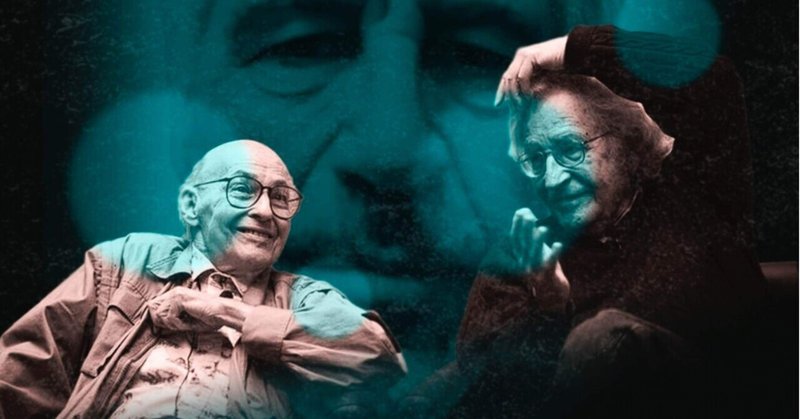
エプスタインとチョムスキーの関係を紐解く
エプスタインとチョムスキーの関係を紐解く
著名な言語学者であり政治活動家であるノーム・チョムスキーが、ジェフリー・エプスタインと何度も会っていたことが最近明らかになり、多くの人が驚き、困惑しています。なぜエプスタインはノーム・チョムスキーと会うことに興味を持ったのか?そして、なぜチョムスキーは、彼の過去にもかかわらず、会うことに同意したのでしょうか?その答えは、あなたを驚かせるかもしれません。
BY
ホイットニー・ウェッブ
2023年5月3日
日曜日、ウォール・ストリート・ジャーナル紙は、亡くなった性犯罪者ジェフリー・エプスタインのこれまで報道されなかった文書の「山」内に含まれる情報の詳細を伝えるレポートを発表しました。これらの文書は、一般には公開されておらず、ジャーナルにのみ渡されたようですが、エプスタインのプライベートなカレンダーや会議のスケジュールが含まれていました。ジャーナルによると、この文書には「2013年から2017年までの数千ページのメールとスケジュール」が含まれており、レポートが指摘するように、エプスタインのフライトログや悪名高い「小さな黒本」の連絡先に名前がなかった複数の著名人との取引が詳細に記されています。そのうちの一人が、著名な言語学者、政治評論家、資本主義と帝国の批判者であるノーム・チョムスキーです。
チョムスキーは、以前にもインタビューでエプスタイン事件について語り、エプスタインと情報機関との結びつきを「陰謀論」とみなすべきであると主張していましたが、これらの会合についてはこれまで公表してきませんでした。チョムスキーは、ジャーナル紙の記者と対峙した際、言い逃れをしたが、最終的にジェフリー・エプスタインと面会し、知り合ったことを認めている。
チョムスキーのような政治的見解を持つ人物が、ジェフリー・エプスタインのような人物と、特にエプスタインが性的人身売買や小児性愛者として有名になった後、なぜ一度ならず何度も進んで会うのか、主に左派の多くの人々は失望と混乱を表明しています。この報告書で明らかにするように、エプスタインはチョムスキーを、彼の科学的な強迫観念、すなわちトランスヒューマニズムと優生学に関して、彼の決断を導いてくれるもう一人の知識人として見ていたようである。チョムスキーがエプスタインと会って得た見返りは、それほど明確ではありません。
なぜチョムスキーはエプスタインと会ったのか?
ジャーナルによると、チョムスキーとエプスタインの会合は、チョムスキーがマサチューセッツ工科大学(MIT)で教えていた2015年から2016年にかけて行われた。チョムスキーは、ハーバードのマーティン・ノワック(エプスタインから多額の資金援助を受けていた)のような他の学者と神経科学などの話題について話し合うためにエプスタインと会ったとジャーナルに語った。別の機会に、チョムスキーはエフド・バラク元イスラエル首相とともにエプスタインと再び会い、"パレスチナ問題や国際舞台に関するイスラエルの政策 "について議論したとされています。また、別の日には、チョムスキーと彼の妻がエプスタインに招待され、彼、ウディ・アレン、アレンの妻スン=イ・プレヴィンと夕食を共にしました。ウディ・アレンとエプスタインとの夕食会について尋ねられたチョムスキーは、その時のことを "偉大な芸術家と過ごした一夜 "と表現しています。
この証拠を突きつけられたとき、チョムスキーは当初、エプスタインとの出会いや関係は「あなたには関係ないことだ」とジャーナルに言いました。あるいは誰のものでもない "と言った。そして、"私は彼(エプスタイン)を知っていて、時々会っていた "と付け加えました。
これ以上続ける前に、エプスタインの他に、エフド・バラクとウディ・アレンの両名が、未成年者との不適切な性的関係で告発されていることに注目する必要があります。例えば、バラクはニューヨークのエプスタインの住居を頻繁に訪れていました。Daily Beastは、エプスタインに関連するアパートの多数の住人が「ここ数年、バラクを何度もビルで見かけ、さらに6人近くが彼の警備員と鉢合わせしたと話している」と報告し、「そのビルはエプスタインの弟、マークが過半数の所有者で、金融業者のニューヨーク人身売買組織とされてきた」と付け加えました。

具体的には、エプスタインの未成年少女の主な調達先の1人であるジャン・リュック・ブルーネルに雇われた元書記係によると、この建物のいくつかのアパートは「南米、ヨーロッパ、旧ソ連からの未成年少女の収容に使用されていた」という。バラクはまた、少なくとも1回はエプスタインの住居の1つで夜を過ごしたことが知られており、2016年の時点でエプスタインの住居を出るところを写真に撮られています。"ペド島"、"ロリータ島"、"乱交島 "といったニックネームで呼ばれているエプスタインの島を訪れたことを認めています。2004年、バラクはレスリー・ウェクスナーのウェクスナー財団から250万ドルを受け取り、エプスタインは財団の評議員であり、財団の上位寄付者の1人でもあった。数年後、バラクは、ワインスタインが性的暴行やセクハラで告発した女性たちを威嚇しようとしたため、ハーヴェイ・ワインスタインを、元モサド工作員やイスラエル軍情報工作員を雇用するイスラエルの民間情報組織ブラックキューブと接触させた。
さらに、バラクは以前、物議を醸したイスラエルの救急サービス新興企業Carbyne911の会長と投資を行っており、この企業は世界中に拡大し、特に米国で定着している。バラク氏はエプスタイン氏に対し、令状なしの大量監視の道具になりかねないと批判されている同社に100万ドルを投資するよう指示していた。レスリー・ウェクスナーもこの会社に数百万ドルを投資していた。
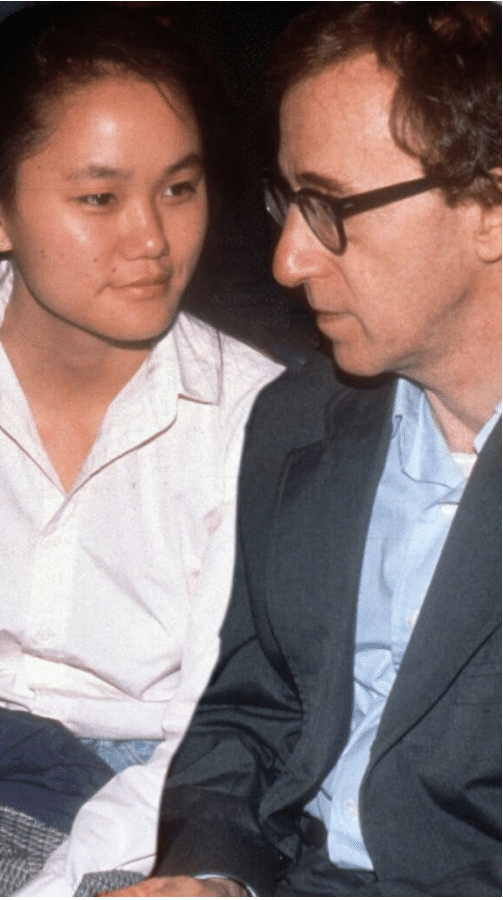
ウディ・アレンの場合、養女のディラン・ファローが7歳の時に性的暴行を加えたと訴えられています。その虐待の主張は、目撃者や他の証拠によって裏付けされている。さらに、アレンは捜査に関連して州警察が実施したポリグラフ検査を拒否し、子供の親権とディラン・ファローへの虐待に関連する4つの徹底的な法廷闘争で敗れた。この裁判の判事の一人は、ディランに対するアレンの行動を "著しく不適切であり、彼女を保護するための措置を講じなければならない "と評しました。ディランの母親である女優のミア・ファローは法廷で、アレンは養女が2歳から3歳の時に性的関心を持ったと主張しました。
アレンはその後、ファローの別の養女であるスンイー・プレヴィンを「誘惑」し、後に結婚しましたが、プレヴィンが幼少の頃、アレンは初めて会ったそうです。しかし、プレヴィンは、アレンとの最初の「友好的」な交流は、彼女が10代の時に行われたと述べている。1992年、ミア・ファローはアレンの自宅でプレヴィンのヌード写真を発見し、これがアレンとの関係を終わらせる動機になったと述べている。
アレンとエプスタイン、そしてバラクの場合、彼らの性癖やスキャンダルは、チョムスキーが彼らと会った時点でよく知られていたため、チョムスキーがこの種の行動をタブー視したり、社会化の障壁と見なしたりしなかったことが強く示唆される。チョムスキーが弱者である未成年者に対するこの種の恐ろしい行為を見過ごすには、何か別の大きな引け目があった可能性が高いのである。
エプスタインがチョムスキーに興味を持った理由、そしてその逆について深い理解に達するという点では、最近『ウォール・ストリート・ジャーナル』が報じた情報だけでなく、エプスタイン自身が2019年の死の前にチョムスキーについて語った内容も確認することが重要です。2017年に行われたが、その後エプスタインが大きなニューストピックとなった2019年に発表されたインタビューによると、エプスタインはチョムスキーを自分のタウンハウスに招いたと公言し、その理由も明言した。奇妙なことに、チョムスキーとの関係に関するエプスタインのこの初期の認識は、ジャーナルの最近の報告書からは省かれていた。
ジェフリー・マーヴィスによって行われ、後に『サイエンス』に掲載されたそのインタビューの中で、エプスタインはチョムスキーについて次のように語っています:
[…]エプスタインは、いわゆるはみ出し者(エプスタインが「スペクトラム」と表現したMITの学生たち)の潜在的な貢献度を評価するために、科学界の著名なメンバーに依頼したことをあっさり認めています。
「植物の細胞メカニズムが人間の癌にどう関係するかを研究する提案です」。ワトソンはノーベル賞受賞者であり、DNAの構造の共同発見者でもあります。人工知能のパイオニアの一人であるチョムスキーは、「人工知能についても同様です」と語っています。
実際、エプスタインは、こうした長老たちの意見に大きな敬意を表している。「ノーム・チョムスキーが、思考マシーンについて語る若い男の子たちをバラバラにするのを見るのは面白い」とエプスタインは指摘する。「彼は短剣を取り出して、とても親切に、彼らを小さなズタズタに切り刻むのです」。
このように、エプスタインによれば、チョムスキーを自宅に招いたのは、エプスタインの主要な科学的関心事であった「人工知能」に明確に関連していたのです。このことは、チョムスキーとエプスタインが最初にどのように知り合ったかを知る大きな手がかりにもなる。
チョムスキー、エプスタイン、MIT
チョムスキーは、有名な言語学者であり、政治評論家であり、現代の資本主義や帝国主義を批判する人物として最も広く知られている。では、なぜエプスタインは、人工知能の問題で彼に会おうとしたのだろうか。
チョムスキーとエプスタインの "友人 "は、人工知能のパイオニア、マーヴィン・ミンスキーである。ミンスキーはチョムスキーと同様、MITの教授として長年にわたり研究を行っていた。特にエプスタインがMITへの大口寄付者であったことを考えると、ミンスキーが2人を結びつけた可能性は非常に高い。エプスタインは、エプスタインがチョムスキーと会い始めてからおよそ1年後の2016年に亡くなったミンスキーと「非常に親しい」と自称していました。エプスタインはミンスキーのプロジェクトの一部にも資金を提供しており、ミンスキーはエフド・バラクと同様に、エプスタインが人身売買した未成年者を性的虐待したことで告発されています。
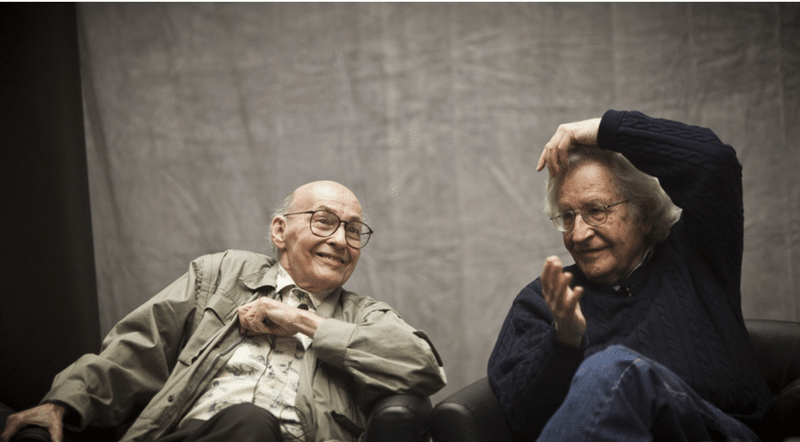
チョムスキーの言語学と認知に関する見解は、ご存じない方のために説明すると、進化生物学に非常によく基づいています。チョムスキーは認知科学の先駆者でもあり、"我々の知覚・認知能力の根底にある心的表現とルールを明らかにすることを目的とした分野 "と説明されています。チョムスキーの言語概念を、"ゲノムにコード化された内部表現の複雑さと、正しいデータに照らしたそれらの成熟が、連想の集合に有用に分解することができない、高度な計算システムになる "と説明する人もいます。チョムスキーは、人の「言語能力」を「視覚系、免疫系、循環器系と同じように、生物の遺伝子の一部とみなすべきであり、これらのより現実的な生物システムにアプローチするのと同様に、私たちもアプローチすべきである」と述べている。
二人の友情にもかかわらず、ミンスキーはこの見解においてチョムスキーと大きく乖離し、ミンスキーはチョムスキーの言語学と認知に関する見解を、大部分が表面的で無関係であると評した。チョムスキーはその後、AIで広く使われている、データをマイニングして予測する統計的学習技術に焦点を当てたアプローチを批判し、これは "知的存在の本質や認知に関する一般的な原理をもたらすとは考えにくい "と主張した。
しかし、進化生物学・遺伝学と言語学・認知学を結びつけるチョムスキーの見解は、エプスタインとチョムスキーの会合の一つに出席していた前述のマーティン・ノワックによって賞賛されることになる。生物学と数学の教授で、ハーバード大学の進化力学プログラムの責任者であるノワックは、後に「エプスタインとの夕食中に黒板を取り出し、2時間にわたって言語の仕組みについて数学的に説明したことがある」と述べており、エプスタインが言語学の側面に興味を持っていたことをさらに明らかにしています。この特定の会合が、チョムスキーがノヴァクとともに出席して「神経科学」などを議論したものと同じかどうかは不明である。
しかし、チョムスキーの理論にとって進化生物学や遺伝学が重要であることを考えれば、ジェフリー・エプスタインがミンスキーよりも彼のAIに関する見解に傾倒していたとしても、ほとんど驚くことはない。エプスタインは遺伝学に魅了され、主流な情報源によれば、優生学にも深い関心を寄せていた。たとえば、2019年に『The Guardian』に掲載された記事から、次のようなものを見てみましょう:
エプスタインは、遺伝子工学や人工知能などの技術的なブレークスルーによって、人間の種を意図的に進化させることができるという信念である「トランスヒューマニズム」に執着していたようです。
トランスヒューマニズムとは、サイバネティクスや人工知能などの技術によって、人類の問題を改善し、アップグレードすることができるという信念であり、最も悪質なものでは、トランスヒューマニズムは優生学と違和感なく一致する。
エプスタインのAIや遺伝学への関心は、アンリミテッド・ハングアウトのレポートでも指摘されているように、本質的に優生学の再ブランド化である「トランスヒューマニズム」への執着と結びついています。実際、トランスヒューマニズムという言葉は、英国優生学会の元会長で、優生学に関して「考えられないことをもう一度考えられるようにしよう」と呼びかけたユネスコの初代代表、ジュリアン・ハクスリーによって初めて作られたものです。
エプスタインは、トランスヒューマニズムとは別に、自分の遺伝子を広く拡散させるために、できるだけ多くの女性に自分の「種」を孕ませることで、人類の遺伝子プールを「強化」することにも関心を抱いていたことが明らかになっている。このような考え方は、エプスタインがジェームズ(ジム)・ワトソンのような人物と関わることに興味を持った理由にもなっている。本記事の冒頭で述べたように、エプスタインは2017年、ワトソンとチョムスキーの両方を別々の機会に自宅に招いたことがあると述べている。
ワトソンは、特にアフリカ系の人々はヨーロッパ系の人々よりも遺伝的に劣り、知能も低いと公言して以来、何年も物議を醸してきた人物です。また、「ゲイ遺伝子」が発見された場合、女性はその遺伝子を持つ赤ちゃんを堕胎させるべきだという考えを示したこともある。さらに、すべての女性を「より美しく」し、「愚かさ」を根絶するために遺伝子編集を行うべきだという考えも持っていた。注目すべきは、ワトソンがこれらの発言をしたのは、エプスタインが彼を自宅に招き入れるかなり前のことだったということです。
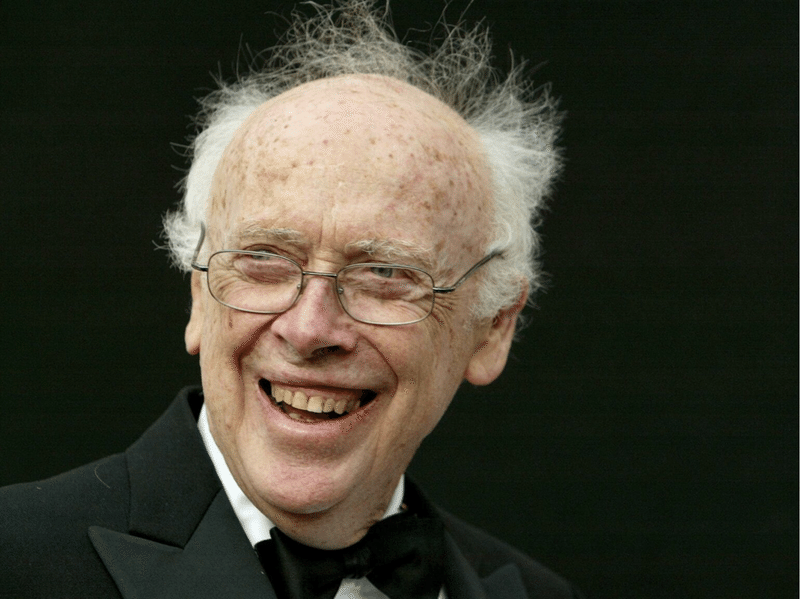
ワトソンはまた、エプスタインが資金提供した別の科学者、エリック・ランダーによる同じコメントの後、物議を醸しながら賞賛された。ランダー氏は、最近バイデン氏の最高科学顧問を務めていたが、昨年、バイデン政権の科学技術局で彼の下で働く人々に嫌がらせをしたと非難され、その職を辞さざるを得なかった。ライデン政権に入る前、ランダーはワトソンとヒトゲノム計画で協力し、その後、MITとハーバードの協力で生まれた非営利団体、ブロード・インスティチュートを運営していた。
チョムスキーは、エプスタインが優生学やトランスヒューマニズムに関心を持っていることを知らなかったかもしれないが、エプスタインの人工知能への関心(チョムスキーに求婚した目的)は、これらの論争的な分野と密接に結びついていたことが、その後明らかになっている。しかし、チョムスキーはエプスタインの過去を知っていたし、ウディ・アレンの同様の過去も彼に会う前に知っていたと思われる。彼は、エプスタインが「刑期を終えた」ので、「白紙に戻した」とジャーナル誌に語り、そのことに目をつぶった。このように語るチョムスキーは、エプスタインが極めて寛大な刑期と不起訴契約を結んで物議を醸した「スイートハート・ディール」を知らないようだ。その "取引 "は、当時の米国弁護士アレックス・アコスタが署名したもので、アコスタは、エプスタインが "諜報機関に属している "という理由で、エプスタインから "手を引く "ように言われていたからです。チョムスキーは以前、アンリミテッドハングアウトの読者を含む数人の人々に、エプスタインと諜報機関のつながりは "陰謀論 "だと言っていました。
エプスタインの過去に対するチョムスキーの奇妙な見解や、エプスタインが他の著名な科学者の周りでトランスヒューマニズムや優生学について頻繁に議論していたことを考えると、証明されてはいないが、チョムスキーはエプスタインのAIや遺伝学への真の関心についてもっと知っていた可能性もある。
チョムスキーは、こうした倫理的な難問を見過ごすことができたのだろうか。資本主義や外交政策に対する彼の政治的見解を考えれば、そうではないだろうと言う人が多いだろう。しかし、AIに関するこうした倫理的な難問を回避する方法を見つけることが、エプスタインがMIT、特にメディアラボに多額の資金を提供した主な理由の1つだったのかもしれない。エプスタインは、自身の寄付に加えて、ビル・ゲイツとレオン・ブラックから数百万ドルをメディアラボに流した。
メディアラボの元職員ロドリゴ・オチガメがThe Interceptに書いたところによると、MITのメディアラボのジョイ伊藤は、エプスタインから多くの寄付を受け、公式記録でエプスタインの名前を隠そうとしたが、AIの「倫理」の開発に注力していた。"論争の的になる技術に対する法的強制力を持つ制限を避けようとするシリコンバレーの取り組みと戦略的に一致する"。伊藤はその後、エプスタインのスキャンダルによる影響から、メディアラボのポストを辞任した。
オチガメはこう書いている:
この活動を支える主要なグループは、研究所もメンバーとして参加し、カリフォルニア州で政策提言を行ったが、私が研究室の同僚数人と行った研究の結論と矛盾するものであった。伊藤自身も、金融機関やハイテク企業の幹部とのプライベートな会合で、グループの提言は倫理的に難しい問題を「白塗り」しているに等しいと訴えるようになった。ある億万長者には、「拘束の判断に、うまく機能しないと思われるアルゴリズムが使われるのを防ぐために、我々が言おうとしていることを水増ししている」と打ち明けています。
元国務長官で悪名高い戦犯であるヘンリー・キッシンジャーによるAIと倫理に関する表面的な講演を主催したり、米国防総省の戦争に関する「AI倫理原則」に意見を出したりして、米軍がドローン戦の道徳的複雑さを脇に追いやるのを私は見てきました。
また、オチガメ氏は、生前ラボで働いていたマーヴィン・ミンスキーが、"倫理学者とは、あなたの心にあるものなら何でも問題にする人だ "と言っていたことで知られている、というメディアラボの同僚たちの話を引用しています。また、伊藤、ひいてはメディアラボが、AIに関するホワイトハウスの政策形成に一役買っていたことも問題です。例えば、オバマ大統領は2016年に行われた伊藤との対談で、伊藤をAIと倫理に関する「専門家」と呼んでいる。伊藤はオバマとの対談で、次のように語っている: "[...]メディアラボの役割は、コンピュータサイエンスと、社会科学と、弁護士と、哲学者の間の結合組織となることです[...]クールなのは、オバマ大統領がそれを理解していることです。"
もしあなたがジェフリー・エプスタインで、違法行為や犯罪行為の経歴があり、トランスヒューマニズム/優生学のビジョンを推進するために必要だと思う論争的な技術の規制を避けることに興味があるなら、それらの技術の規制を制限するのに役立つ「倫理」政策に大きな影響を与えるグループに資金提供することは明らかにあなたの利益になります。
さらに、オチガメは次のように書いている:
シリコンバレーが「倫理的AI」を積極的に推進するのは、アカデミアが自らの正当性を主張するための戦略的ロビー活動である。伊藤は、この企業・学界の友愛に重要な役割を果たし、ハイテク企業の幹部と定期的に会っていた。MIT・ハーバード・ファンドの最初のディレクターは、グーグルのAI担当の元「グローバル公共政策リード」であった。伊藤とその仲間は、このファンドを通じて、コンピュータサイエンスにおける「公正、説明責任、透明性」をテーマにした著名な会議の創設など、多くのプロジェクトを支援した。この会議の他のスポンサーには、グーグル、フェイスブック、マイクロソフトが名を連ねた。
注目すべきは、エプスタインがこれらの同じサークルとつながっていたことです。彼は、ビル・ゲイツだけでなく、マイクロソフトの他の数人のトップ幹部とも非常に親しく、また、最近エプスタイン-JPモルガン事件で召喚されたグーグルのセルゲイ・ブリンや、フェイスブック/メタのマーク・ザッカーバーグとも親しい関係にあることが知られています。注目すべきは、これら同じ企業の多くが、現在、特に医療分野でトランスヒューマニズム技術を開拓しており、その両方ではないにせよ、軍や諜報機関と深く結びついていることである。
MIT-AI-軍事のつながり
チョムスキーは、エプスタインが、彼の物議を醸すようなこだわりを実現するための技術開発を促進するために、口説いた著名な学者や知識人の一人に過ぎません。注目すべきは、チョムスキーを含むこれらの人物の多くが、ある時期から米軍から資金提供を受けていたことである。
例えば、ミンスキーは、エプスタインの側近であったダニー・ヒリスと共同で、DARPAの請負業者兼スーパーコンピューター会社「シンキング・マシーンズ」を設立し、「真の知的機械」を作ることを目指していました。見て、聴いて、話すことができる。ある会社のパンフレットによれば、「私たちを誇りに思うような機械」である。ミンスキーはMITでのヒリスのメンターであり、2人はハーバード大学で遺伝子工学のスタートアップであるジェネティクス・インスティテュートで働いていたシェリル・ハンドラーに、スーパーコンピュータ会社の設立を手伝ってもらうよう頼んだ。

当初から経営判断に迷うことが多かったThinking Machines社が、これほど長く存続できたのは、国防総省のDARPAから獲得した数百万ドルの契約によるものだった。冷戦終結後、DARPAはThinking Machines社に対して、地球気候のモデル化、ヒトゲノムのマッピング、地震の予測などに対応できる製品を開発するよう、その影響力を利用しようとした。その後、ウォール・ストリート・ジャーナル紙の報道で、Thinking Machines社が "贔屓 "をしていたことが明らかになり、悪評のためにThinking Machines社の "グレービー・トレイン "は突然終わり、その後、同社は崩壊してしまった。
ヒリスは、この頃、ジェフリー・エプスタインと出会った。この出会いは、ヒリスの友人で、1990年代にエプスタインと親しくなり、エプスタインをロシアへのマイクロソフトの公式旅行に同行させたこともある、マイクロソフトの元最高技術責任者ネイサン・マーボルドが仲介したのかもしれない。エプスタインが人身売買した未成年者の虐待者としても名前が挙がっているMyhrvoldは、1990年代からエプスタインと親しくしていた他のマイクロソフト幹部の1人であった。もう一人はリンダ・ストーンで、彼は後にジェフリー・エプスタインとMITメディアラボのジョイ・イトーを結びつけた。先に述べたように、エプスタインは後に、マイクロソフトの長年のトップであるビル・ゲイツに指示して、メディアラボに数百万ドルを寄付させることになる。
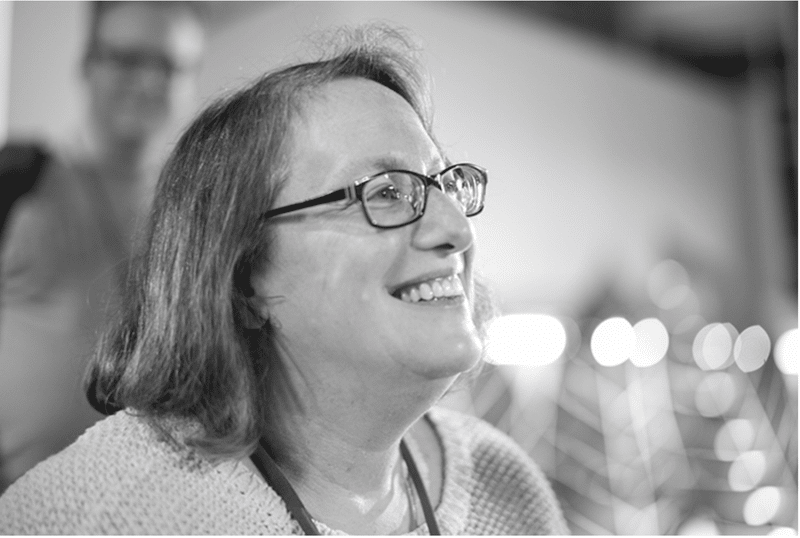
チョムスキーは、MITでの経歴から、軍と接触することになる。例えば、1960年代初頭、チョムスキーは空軍から資金援助を受けていた。空軍は、チョムスキーの文法に関する洞察をコンピュータにプログラムし、「完全に普通の英語で与えられた指示を認識する能力をコンピュータに与え、それによって人間とコンピュータの間に介在する高度に専門的な言語の必要性をなくす」ことを目的としていた。チョムスキーは後に、初期のキャリアにおける軍からの資金提供について、「私は軍の研究所にいた。私の初期の出版物を見てみると、どれも空軍や海軍などのことが書いてある。私は軍の研究所、エレクトロニクス研究所にいたからだ」。
チョムスキーはその後、軍の資金が彼の言語学の仕事を重要な形で形作ったことを否定し、軍は政府によって "未来のハイテク経済を作るために税金が使われる一種の漏斗 "として使われていると主張しています。しかし、報道では、この特定のプロジェクトが非常に軍事的な応用と結びついていたことが指摘されています。さらに、1950年代半ばにチョムスキーを初めてMITにスカウトしたジェローム・ウィズナーは、その後20年以上にわたってMITでチョムスキーの上司であり、"米国で最も強力な軍事科学者 "となった。
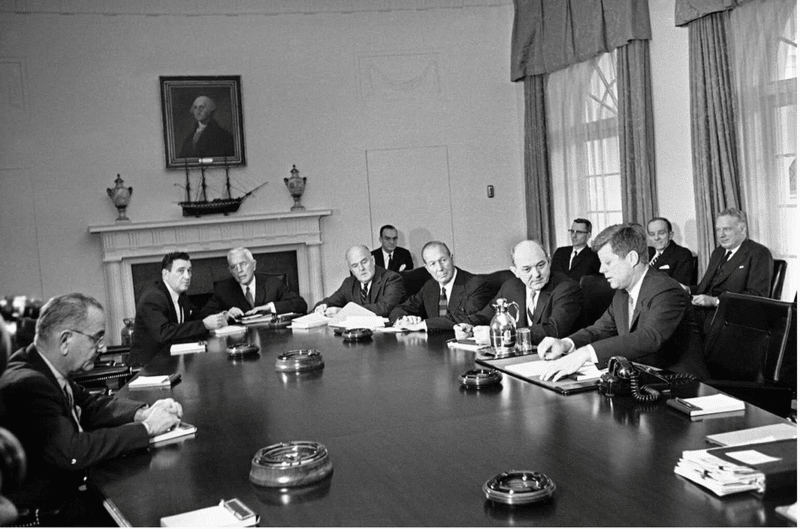
チョムスキーの名誉のために言っておくと、このプログラムが終了した後、彼は完全に、そして公に、反戦活動に専念するようになったのである。この活動により、一時はMITを辞職することも考えたが、それを断念したのは、教授職にすぐに就いたからであろう。クリス・ナイトが書いているように、「つまり、チョムスキーの選択は、辞任する代わりに、米国で最も権威のある軍事研究所の1つに居ながら、率直な反軍国主義活動家としての自分を打ち出すことだった」のです。
MITに残ることで、チョムスキーは、後に糾弾の象徴となる権力中枢に比較的近い場所で、キャリアを維持することを選んだのです。しかし、この時期からチョムスキーは、そのラディカリズムをある程度損なうような選択をするようになったことがわかる。チョムスキーは、1960年代にMITに残るという決断を合理化したのかもしれません。なぜなら、MITは自分の政治的、反戦的な見解を主張するためのより良いプラットフォームを与えてくれたからです。著名な公人がこのような妥協をするのは前代未聞のことではありません。しかし、最近のエプスタインの暴露とそれが示唆するものを考慮すると、特に晩年のチョムスキーは、このような妥協をすることを厭わなくなったのではないだろうか - もっと若いチョムスキーなら間違いなく拒否したであろう妥協だ。
原文:
Unraveling the Epstein-Chomsky Relationship
Recent revelations that the renowned linguist and political activist met with Jeffrey Epstein several times have surprised and confused many. Why was Epstein interested in meeting with Noam Chomsky? And why did Chomsky agree to meet him despite his past? The answer may surprise you.
BY
WHITNEY WEBB
May 3, 2023
On Sunday, the Wall Street Journal published a report detailing information contained within a “trove” of previously unreported documents of the deceased sex trafficker Jeffrey Epstein. Those documents, which have not been publicly released and appear to have been passed solely to the Journal, included Epstein’s private calendar and meeting schedules. The documents, per the Journal, contain “thousands of pages of emails and schedules from 2013 to 2017” and – as the report notes – detail Epstein’s dealings with several prominent individuals whose names were not on his flight logs or his infamous “little black book” of contacts. One of these individuals is the renowned linguist, political commentator and critic of capitalism and empire, Noam Chomsky.
Chomsky, who has previously discussed the Epstein case in interviews and who has maintained that Epstein’s ties to intelligence agencies should be considered a “conspiracy theory,” had not previously disclosed these meetings. Chomsky, when confronted by Journal reporters, was evasive, but ultimately admitted to meeting and knowing Jeffrey Epstein.
Many, largely on the left, have expressed dismay and confusion as to why someone with the political views of Chomsky would willingly meet, not once but several times, with someone like Jeffrey Epstein, particularly well after Epstein’s notoriety as a sex trafficker and pedophile. As this report will show, Epstein appeared to view Chomsky as another intellectual who could help guide his decisions when it came to his scientific obsessions – namely, transhumanism and eugenics. What Chomsky gained in return from meeting with Epstein isn’t as clear.
Why Did Chomsky Meet with Epstein?
According to the Journal, Chomsky’s meetings with Epstein took place during the years 2015 and 2016, while Chomsky taught at the Massachusetts Institute of Technology, or MIT. Chomsky told the Journal that he met with Epstein to discuss topics like neuroscience with other academics, like Harvard’s Martin Nowak (who was heavily funded by Epstein). On a separate occasion, Chomsky again met with Epstein alongside former Israeli Prime Minister, Ehud Barak, allegedly to discuss “Israel’s policies with regard to Palestinian issues and the international arena.” A separate date saw Chomsky and his wife invited by Epstein to have dinner with him, Woody Allen and Allen’s wife Soon-Yi Previn. When asked about the dinner date with Woody Allen and Epstein, Chomsky referred to the occasion as “an evening spent with a great artist.”
When confronted with this evidence, Chomsky initially told the Journal that his meetings and relationship with Epstein were “none of your business. Or anyone’s.” He then added that “I knew him [Epstein] and we met occasionally.”
Before continuing further, it is important to note that aside from Epstein, both Ehud Barak and Woody Allen have been accused of having inappropriate sexual relationships with minors. For instance, Barak was a frequent visitor to Epstein’s residences in New York, so often that The Daily Beast reported that numerous residents of an apartment building linked to Epstein “had seen Barak in the building multiple times over the last few years, and nearly half a dozen more described running into his security detail,” adding that “the building is majority-owned by Epstein’s younger brother, Mark, and has been tied to the financier’s alleged New York trafficking ring.”
Ehud Barak attempting to hide his face during a 2016 visit to Jeffrey Epstein’s New York Residence. Source: Daily Mail
Specifically, several apartments in the building were “being used to house underage girls from South America, Europe and the former Soviet Union,” according to a former bookkeeper employed by one of Epstein’s main procurers of underage girls, Jean Luc Brunel. Barak is also known to have spent the night at one of Epstein’s residences at least once, was photographed leaving Epstein’s residence as recently as 2016, and has admitted to visiting Epstein’s island, which has sported nicknames including “Pedo Island,” “Lolita Island” and “Orgy Island.” In 2004, Barak received $2.5 million from Leslie Wexner’s Wexner Foundation, where Epstein was a trustee as well as one of the foundation’s top donors, officially for unspecified “consulting services” and “research” on the foundation’s behalf. Several years later, Barak put Harvey Weinstein in contact with the Israeli private intelligence outfit Black Cube, which employs former Mossad agents and Israeli military intelligence operatives, as Weinstein sought to intimidate the women who had accused him of sexual assault and sexual harassment.
In addition, Barak previously chaired and invested in Carbyne911, a controversial Israeli emergency services start-up that has expanded around the world and has become particularly entrenched in the United States. Barak had directed Epstein to invest $1 million into that company, which has been criticized as a potential tool for warrantless mass surveillance. Leslie Wexner also invested millions in the company.
Woody Allen and Soon-Yi Previn in 1990. Source: Allvip
In Woody Allen’s case, he has been accused of sexually assaulting his adopted daughter Dylan Farrow when she was 7 years old. That abuse claim has been corroborated by witnesses and other evidence. Furthermore, Allen refused to take a polygraph administered by state police in connection with the investigation and lost four exhaustive court battles related to child custody and his abuse of Dylan Farrow. One of the judge’s in the case described Allen’s behavior towards Dylan as “grossly inappropriate and that measures must be taken to protect her.” Actress Mia Farrow, Dylan’s mother, alleged in court that Allen took a sexual interest in her adopted daughter when she was between the ages of two and three years old.
Allen subsequently “seduced” and later married another adopted daughter of Farrow’s, Soon-Yi Previn, whom Allen first met when Previn was a child. However, Previn has stated that her first “friendly” interaction with Allen took place when she was a teenager. In 1992, Mia Farrow found nude photos of Previn in Allen’s home and has stated that this was her motive for ending her relationship with Allen.
In the case of Allen and Epstein, and potentially Barak as well, their sexual proclivities and scandals were well known by the time Chomsky met with these men, making a strong suggestion that this type of behavior was not seen by Chomsky as taboo or as a barrier to socialization. It is more likely than not that there was some other major draw that led Chomsky to overlook this type of horrendous behavior toward vulnerable minors.
In terms of reaching a deeper understanding about why Epstein would have been interested in Chomsky – and vice versa, it is important to review – not just the information recently reported by the Wall Street Journal, but also what Epstein himself said of Chomsky before his 2019 death. According to an interview conducted in 2017, but later published in 2019 when Epstein was a major news topic, Epstein openly stated that he had invited Chomsky to his townhouse and he also explicitly stated why he had done so. Oddly, this early acknowledgement of Epstein’s regarding his relationship with Chomsky was left out of the Journal’s recent report.
In that interview, which was conducted by Jeffrey Mervis and later published in Science, Epstein stated that following about Chomsky:
[…] Epstein readily admitted to asking prominent members of the scientific establishment to assess the potential contribution of these so-called outcasts [i.e. MIT students Epstein described as being “on the spectrum”].
“So, I had Jim Watson to the house, and I asked Watson, what does he think about this idea,” a proposal to study how the cellular mechanisms of plants might be relevant to human cancer. Watson is a Nobel laureate and co-discoverer of the structure of DNA. “Likewise with [Noam] Chomsky on artificial intelligence,” he said, referring to one of the pioneers in the field.
In fact, Epstein expressed great respect for the opinions of these elder statesmen. “It’s funny to watch Noam Chomsky rip apart these young boys who talk about having a thinking machine,” Epstein noted. “He takes out a dagger and slices them, very kindly, into little shreds.”
Thus, per Epstein, his interest in inviting Chomsky to his house was explicitly related to the “artificial intelligence,” which was a major scientific interest of Epstein’s. This also provides a major clue as to how Chomsky and Epstein might have first been introduced.
Chomsky, Epstein and MIT
Chomsky is most widely viewed as a famous linguist, political commentator and critic of modern capitalism and imperialism. So, why did Epstein seek to meet with him instead on Artificial Intelligence matters?
Well, an admitted “friend” of both Chomsky’s and Epstein’s was the AI pioneer Marvin Minsky. Like Chomsky, Minsky was a long-time professor and academic at MIT. It is very possible that Minsky connected the two men, especially considering the fact that Epstein was a major donor to MIT. Epstein described himself as being “very close” to Minsky, who died in 2016, roughly a year after Epstein began meeting with Chomsky. Epstein also financed some of Minsky’s projects and Minsky, like Ehud Barak, was accused of sexually abusing the minors Epstein trafficked.
Marvin Minsky, left, and Noam Chomsky, right, converse before the beginning of a panel that was part of MIT’s “Brains, Minds and Machines” symposium in 2011. Source: MIT
Chomsky’s views on linguistics and cognition, for those who don’t know, is based very much on evolutionary biology. Chomsky was also a pioneer in cognitive science, described as “a field aimed at uncovering the mental representations and rules that underlie our perceptual and cognitive abilities.” Some have described Chomsky’s concept of language as based on “the complexity of internal representation, encoded in the genome, and their maturation in light of the right data into a sophisticated computational system, one that cannot be usefully broken down into a set of associations.” A person’s “language faculty,” per Chomsky, should be seen as “part of the organism’s genetic endowment, much like the visual system, the immune system and the circulatory system, and we ought to approach it just as we approach these other more down-to-earth biological systems.”
Despite their friendship, Minsky greatly diverged with Chomsky in this view, with Minsky describing Chomsky’s views on linguistics and cognition as largely superficial and irrelevant. Chomsky later criticized the widely used approach with AI that focuses on statistical learning techniques to mine and predict data, which Chomsky argued was “unlikely to yield general principles about the nature of intelligent beings or about cognition.”
However, Chomsky’s views linking evolutionary biology/genetics with linguistics/cognition were notably praised by the aforementioned Martin Nowak, who had attended one of the meetings Epstein had with Chomsky. Nowak, a professor of biology and mathematics and head of the Program for Evolutionary Dynamics at Harvard, later stated that he had “once broke out a blackboard during dinner with Epstein and, for two hours, gave a mathematical description of how language works,” further revealing that Epstein was interested in aspects of linguistics. It is unclear if this particular meeting was the same that Chomsky had attended alongside Nowak to discuss “neuroscience” and other topics.
However, given the importance of evolutionary biology and genetics to Chomsky’s theories, it is hardly surprising that Jeffrey Epstein would have gravitated more towards his views on AI than those of Minsky. Epstein was fascinated by genetics and, even per mainstream sources, was also deeply interested eugenics. Take for example the following from an article published in The Guardian in 2019:
Epstein was apparently fixated on “transhumanism,” the belief that the human species can be deliberately advanced through technological breakthroughs, such as genetic engineering and artificial intelligence.
At its most benign, transhumanism is a belief that humanity’s problems can be improved, upgraded even, through such technology as cybernetics and artificial intelligence – at its most malignant though, transhumanism lines up uncomfortably well with eugenics.
Thus, Epstein’s interest in AI, genetics, and more was tied into his documented obsession with “transhumanism,” which – as several Unlimited Hangout reports have noted – is essentially a rebranding of eugenics. Indeed, the term transhumanism itself was first coined by Julian Huxley, the former president of the British Eugenics Society and the first head of UNESCO who called to make “the unthinkable thinkable again” with regards to eugenics.
Aside from transhumanism, Epstein also had an avowed interest in “strengthening” the human gene pool, in part by impregnating as many women as possible with his “seed” in order to widely disperse his genes. These views may also explain Epstein’s interest in associating himself with people like James (Jim) Watson. As noted earlier in this article, Epstein stated in 2017 that he had invited both Watson and Chomsky to his home on separate occasions.
Watson has been a controversial figures for years, particularly after he openly stated that people of African descent are genetically inferior and less intelligent than their European counterparts. He also previously promoted the idea that women should abort babies that carried a “gay gene,” were such a gene ever discovered. He also felt that gene editing should be used to make all women “prettier” and to eradicate “stupidity.” Notably, Watson made all of these comments well before Epstein invited him to his home.
James Watson in an undated photo. Source: Insider
Watson was also praised, controversially, after these same comments by another Epstein-funded scientist, Eric Lander. Lander, who was recently Biden’s top science advisor, was forced to resign from that post last year after being accused of harassing those who worked under him in the Biden administration’s Office of Science and Technology. Prior to joining the Biden administration, Lander had collaborated with Watson on the Human Genome Project and later ran the Broad Institute, a non-profit born out of collaboration between MIT and Harvard.
Returning to Chomsky, though he may not have been aware of Epstein’s interests in eugenics and transhumanism, it has since become clear that Epstein’s main interest in Artificial Intelligence – his stated purpose for courting Chomsky – was intimately tied to these controversial disciplines. However, Chomsky did know of Epstein’s past, and likely also knew of Woody Allen’s similar past before meeting him as well. He turned a blind eye on those matters, telling the Journal that Epstein had “served his sentence” and, as a result, had been granted a “clean slate.” In saying this, Chomsky is apparently unaware of Epstein’s controversial “sweetheart deal” that resulted in an extremely lenient sentence and non-prosecution agreement. That “deal” was signed off on by then-US Attorney Alex Acosta because Acosta was told to “back off” Epstein because Epstein “belonged to intelligence.” Chomsky had previously told several people, including an Unlimited Hangout reader, that an Epstein-intelligence agency connection is a “conspiracy theory.”
Given Chomsky’s odd views on Epstein’s past and the fact that Epstein frequently discussed transhumanism and eugenics around other prominent scientists, it is possible, though unproven, that Chomsky may have known more about Epstein’s true interests in AI and genetics.
Would Chomsky have been willing to overlook these ethical conundrums? Given his political views on capitalism and foreign policy, many would likely say that he would not. However, finding ways to circumvent these ethical conundrums with respect to AI may have been one of Epstein’s main reasons for heavily funding MIT, particularly its Media Lab. Epstein, in addition to his own donations, also funneled millions of dollars from Bill Gates and Leon Black to the Media Lab.
According to former Media Lab employee Rodrigo Ochigame, writing in The Intercept, Joi Ito of MIT’s Media Lab – who took lots of donations from Epstein and attempted to hide Epstein’s name on official records – was focused on developing “ethics” for AI that were “aligned strategically with a Silicon Valley effort seeking to avoid legally enforceable restrictions of controversial technologies.” Ito later resigned his post at the Media Lab due to fallout from the Epstein scandal.
Ochigame writes:
A key group behind this effort, with the lab as a member, made policy recommendations in California that contradicted the conclusions of research I conducted with several lab colleagues, research that led us to oppose the use of computer algorithms in deciding whether to jail people pending trial. Ito himself would eventually complain, in private meetings with financial and tech executives, that the group’s recommendations amounted to “whitewashing” a thorny ethical issue. “They water down stuff we try to say to prevent the use of algorithms that don’t seem to work well” in detention decisions, he confided to one billionaire.
I also watched MIT help the U.S. military brush aside the moral complexities of drone warfare, hosting a superficial talk on AI and ethics by Henry Kissinger, the former secretary of state and notorious war criminal, and giving input on the U.S. Department of Defense’s “AI Ethics Principles” for warfare, which embraced “permissibly biased” algorithms and which avoided using the word “fairness” because the Pentagon believes “that fights should not be fair.”
Ochigame also cites Media Lab colleagues who say that Marvin Minsky, who worked with the Lab before his death, was known to say that “an ethicist is someone who has a problem with whatever you have in your mind.” Also troubling is the fact that Ito, and by extension the Media Lab, played a role in shaping White House policy with respect to AI. For instance, Obama called Ito an “expert” on AI and ethics during an interview with him in 2016. Ito, on his conversation with Obama, said the following: “[…] the role of the Media Lab is to be a connective tissue between computer science, and the social sciences, and the lawyers, and the philosophers […] What’s cool is that President Obama gets that.”
If you are Jeffrey Epstein, with a history of illegal and criminal activity, and interested in avoiding the regulation of controversial technologies you feel are necessary to advance your vision of transhumanism/eugenics, financing groups that greatly influence “ethics” policies that helps limit the regulation of those technologies would obviously benefit you.
Ochigame goes on to write:
Thus, Silicon Valley’s vigorous promotion of “ethical AI” has constituted a strategic lobbying effort, one that has enrolled academia to legitimize itself. Ito played a key role in this corporate-academic fraternizing, meeting regularly with tech executives. The MIT-Harvard fund’s initial director was the former “global public policy lead” for AI at Google. Through the fund, Ito and his associates sponsored many projects, including the creation of a prominent conference on “Fairness, Accountability, and Transparency” in computer science; other sponsors of the conference included Google, Facebook, and Microsoft.
Notably, Epstein was tied into these same circles. He was very, very close, not just with Bill Gates, but with several other top Microsoft executives and was also known to have a close relationship with Google’s Sergey Brin, who has recently been subpoenaed in the Epstein-JPMorgan case, as well as Facebook/Meta’s Mark Zuckerberg. Notably, many of these same companies are currently pioneering transhumanist technologies, particularly in healthcare, and are deeply tied to either the military or intelligence, if not both.
The MIT-AI-Military Connection
Chomsky is just one of several prominent academics and intellectuals who were courted by Epstein in an attempt to supercharge the development of technologies that could help bring his controversial obsessions to fruition. Notably, many of these characters, including Chomsky, have had their work – at one point or another – funded by the U.S. military, which has itself long been a major driver of AI research.
For example, Minsky and Danny Hillis, a close associate of Epstein’s in his own right, co-created a DARPA contractor and supercomputer firm called Thinking Machines, which was aimed at creating a “truly intelligent machine. One that can see and hear and speak. A machine that will be proud of us,” according to one company brochure. Minsky was Hillis’ mentor at MIT and the pair sought out Sheryl Handler, who worked for a genetic-engineering start-up at Harvard called the Genetics Institute, to help them create their supercomputer firm.
Danny Hillis speaks at the 2013 TED Conference in Long Beach, California. Source: Flickr
Thinking Machines, which made poor business decisions routinely from the beginning, was only able to function for as long as it did due to multi-million dollar contracts it had secured from the Pentagon’s DARPA. With the close of Cold War, DARPA sought to use its clout with Thinking Machines to push the company to develop a product that could deal with things like modeling the global climate, mapping the human genome and predicting earthquakes. Subsequent reporting from the Wall Street Journal showed that the agency had been “playing favorites” and Thinking Machine’s “gravy train” abruptly ended due to the bad publicity, subsequently leading to the collapse of the company.
Hillis, around this time, met Jeffrey Epstein. The introduction may have been brokered by former Microsoft’s Chief Technology Officer Nathan Myhrvold, a friend of Hillis’ who grew close to Epstein in the 1990s and even took Epstein on an official Microsoft trip to Russia. Myhrvold, who was also named as an abuser of the minors Epstein trafficked, was one of the other top Microsoft officials who was close to Epstein beginning in the 1990s. Another was Linda Stone, who later connected Jeffrey Epstein to Joi Ito of MIT’s Media Lab. As previously mentioned, Epstein would later direct the long-time head of Microsoft, Bill Gates, to donate millions to the Media Lab.
Linda Stone at the 2016 SciFoo Conference. Source: JonesBlog
Chomsky’s own history at MIT brought him into contact with the military. For instance, during the early 1960s, Chomsky received funding from the Air Force, which aimed to program a computer with Chomsky’s insights about grammar in an attempt to endow it “with the ability to recognize instructions imparted to it in perfectly ordinary English, thereby eliminating a necessity for highly specialized languages that intervene between a man and a computer.” Chomsky later stated of the military funding of his early career that “I was in a military lab. If you take a look at my early publications, they all say something about Air Force, Navy, and so on, because I was in a military lab, the Research Lab for Electronics.”
Chomsky has since denied that military funding shaped his linguistics work in any significant way and has claimed that the military is used by the government “as a kind of a funnel by which taxpayer money was being used to create the hi-tech economy of the future.” However, reports have noted that this particular project was very much tied to military applications. In addition, the man who first recruited Chomsky to MIT in the mid-1950s, Jerome Wiesner, went on to be Chomsky’s boss at MIT for over 20 years as well as “America’s most powerful military scientist.”
Jerome Wiesner (second from left) at a White House cabinet meeting during the Kennedy administration. Source: The Conversation
To Chomsky’s credit, after this program ended, he became fully, and publicly, committed to anti-war activism. This activism led him, at one point, to consider resigning from MIT, which he declined to do – likely because he was rather quickly granted professorship. As Chris Knight writes, “this meant that instead of resigning, Chomsky’s choice was to launch himself as an outspoken anti-militarist activist even while remaining in one of the US’s most prestigious military labs.”
By staying at MIT, Chomsky chose to maintain his career, in relative proximity to the centers of power he would later become an icon for denouncing. However, it shows that Chomsky, from this time onward, began to make some choices that undermined his radicalism to an extent. Chomsky may have rationalized his decision to stay at MIT in the 1960s because it gave him a better platform from which to espouse his political and anti-war views. It is not unheard of for prominent public figures to make such compromises. However, in light of the recent Epstein revelations and what they appear to signal, it seems that Chomsky, particularly in his later years, may have become too comfortable and too willing to make these types of compromises – ones that a much younger Chomsky would have surely rejected.
この記事が気に入ったらサポートをしてみませんか?
